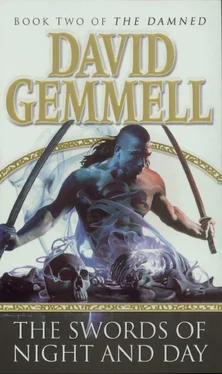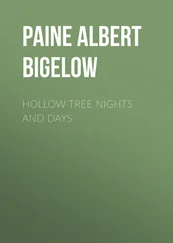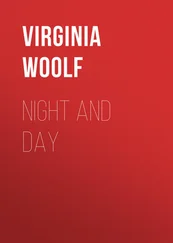‘They were good enough,’ said Alahir grimly. ‘They just weren’t Drenai.’
Gilden smiled, which opened the wide cut on his cheek. He swore.
‘Get someone to stitch that,’ said Alahir.
‘What do you want to do about the prisoners we don’t need?’
‘Let them go — without their mounts.’
‘Agrias won’t like that.’
‘Do I look as though I care?’
‘No.’
In the distance Alahir saw a huge flock of birds suddenly take to the sky, and his mount reared. A deep groan came from the earth. Alahir’s horse bolted. Several other riders were unhorsed. Alahir kept a firm grip on the reins and let the frightened beast have its head for a while, then he gently steered it to the left, seeking to head it back to his troops. Ahead of him a cloud of dust swirled up from the earth, followed instantly by a tremendous thunderclap. The horse, totally panicked now, galloped on. Alahir saw a jagged black line appear on the flatland some fifty yards ahead, as if a giant, invisible sword was scoring the earth. Then the ground suddenly split and a chasm began to open.
Alahir’s first instinct was to kick his feet from the stirrups and roll clear of the horse. However, the memory of Egar’s paralysing fall still haunted him, his friend lying on the damp earth, unable to move his limbs. If Alahir were to die, it would not be because he fell from the saddle. The horse thundered on. The dust was billowing now, and Alahir had no way to tell how wide the chasm had become.
As the galloping horse closed on the yawning gap Alahir let out a Drenai battle cry. The terrified horse leapt. For a frozen moment Alahir believed they would not survive. It was as if he and his mount were hanging in the air over a colossal drop. Time stood still. Then the horse’s front hooves struck solid ground. It landed awkwardly, and stumbled. Alahir was half thrown from the saddle, but hauled himself back. The horse came to a stop, and stood trembling. Alahir patted its sleek neck, then stared back at the chasm. It was closing behind him. Clouds of dust swirled up once more. In the distance he saw huge trees tumble to the mountainside. Touching heels to the still trembling horse he rode back to where his men were clustered together. Most of them had dismounted and were holding the reins of their frightened mounts.
His young aide, Bagalan, looking shocked and pale, called out to him. ‘What is happening?’
‘Earthquake,’ replied Alahir. ‘Speak calmly. The horses are frightened enough.’ He was surprised to hear that his voice showed no sign of the fear pumping through his body. His legs felt weak, and he decided not to dismount for a while, but sat, staring up at the ruined woods above. Some of the wounded enemy lancers were also standing, alongside their conquerors, all thoughts of war vanished.
For a short while there was silence among the gathered men. As the dust began to settle Alahir rode to where Gilden was sitting on the ground, having the wound to his face stitched by another rider. ‘Forget prisoners,’ said Alahir. ‘Get them to dig a grave for our dead, then let them all go.’
Gilden raised a hand in acknowledgement.
Turning his horse, Alahir rode back to Bagalan. The youngster was still pale, and there was a bloody cut on his forearm. Alahir dismounted. From his saddlebag he drew out a leather pouch. Flipping it open he took out a curved needle. ‘Sit down,’ he said. ‘I’ll stitch that wound.’
The lad sank to the ground and looked up at him. ‘Why did you leap that chasm?’ he asked. Alahir threaded the needle and took hold of his aide’s arm. At first the question seemed odd, then he realized how it must have looked. He had turned the horse and headed directly at the great split in the earth.
Looking up he saw other men staring at him. He chuckled and shook his head.
‘Because it was there, boy,’ he said, inserting the needle into the torn flesh, and drawing the thread through. Once back in camp, with a few flasks of wine being shared, he would tell them the truth.
Or maybe not.
* * *
Alahir supervised the burial of the eight dead Legend warriors. First they removed the armour. The Drenai were a poor people now, and the cunningly crafted chain mail was too expensive to bury. The mail coifs and shoulder protectors alone contained hundreds of hand-fashioned rings, involving months of work. The knee-length hauberks, the ring-mail gorgets, the chain leg mail, the helms, swords and bows, would cost more than the average Drenai land worker would earn in several years. Armour was therefore passed from father to son.
Stripped of weapons, each man had copper coins placed over his eyes, held in place by a black strip of silk. Then they were wrapped in their red cloaks and laid carefully in the mass grave dug out by the enemy lancers. The grave was marked, so that the bodies could be recovered later and taken away for a more suitable funeral, where songs would be sung, and their deeds spoken of.
All the dead were well known to Alahir. He had grown up with two of them. And another had been one of his history teachers. This last, a stern man named Graygin, had been nearing sixty, and had tried to hide the fact that the rheumatic had begun to eat away at the joints of his arms. Alahir had known of the condition. ‘I should have sent him home,’ he thought.
‘The fields are green, the sky blue, where these men ride,’ he said, as the warriors gathered round the grave. ‘They will be welcomed in the Fabled Hall, for they were men, and the sons of men. We will all see them again. Keep them in your minds and your hearts.’ He sighed. ‘When this patrol is over we will gather them up and speak the stories of their lives.’ Pulling his mail-shirt hood into place he donned his plumed helm. ‘Now it is time to ride,’ he told them.
Throughout the afternoon they rode a twisting trail, higher and higher into the mountains. Alahir had sent scouts ahead, and they reported no sign of enemy activity. On one section they found the bodies of three lancers, crushed by falling rocks. Trees were down, cutting off the trail in places, and the riders had to dismount and haul them aside, or make difficult detours over rock-strewn slopes.
Gilden, his face stitched and bloody, angled his mount alongside Alahir as they topped a steep slope.
‘Land’s pretty twisted now. Can’t tell where we are,’ he said.
‘We’ll see better when we crest that rise,’ replied Alahir, pointing southwest.
A strong breeze was blowing. It was chill with snow from the upper peaks. Alahir shivered.
Turn to the east, said a voice in his mind.
Alahir tensed in the saddle. Gilden spotted the movement. ‘Are you all right?’
‘I’m fine. The horse spooked.’ Alahir felt anger swell in his heart. He had thought he had silenced the voices years ago, when he had refused to answer them. They had brought him nothing but humiliation and mocking laughter. As a child he would answer them out loud, and other children would stare at him, at first confused, but then would come the jeers.
‘Alahir’s talking to ghosts again!’
Stupid Alahir. Alahir the Loon. ‘The poor boy is unhinged,’ he heard an old woman tell his mother. So he had stopped speaking to them, and stopped listening to them. Gradually they died away. In truth he had never really expected them to stay away for good. His grandfather had gone mad, people said. He had dressed in rags, covered his face in mud, and moved about on all fours wailing like a hound. His great-grandfather, on his mother’s side, had also been insane. Gandias had walled up his wife and two of his sons, and had taken to murdering travellers on the high road above Siccus. It was even said he drank their blood. His trial had produced shocking evidence of his debauchery. When he had been taken to the scaffold Gandias had shrieked and begged, insisting that the voices had told him to do these dreadful things, and that he was not to blame.
Читать дальше












